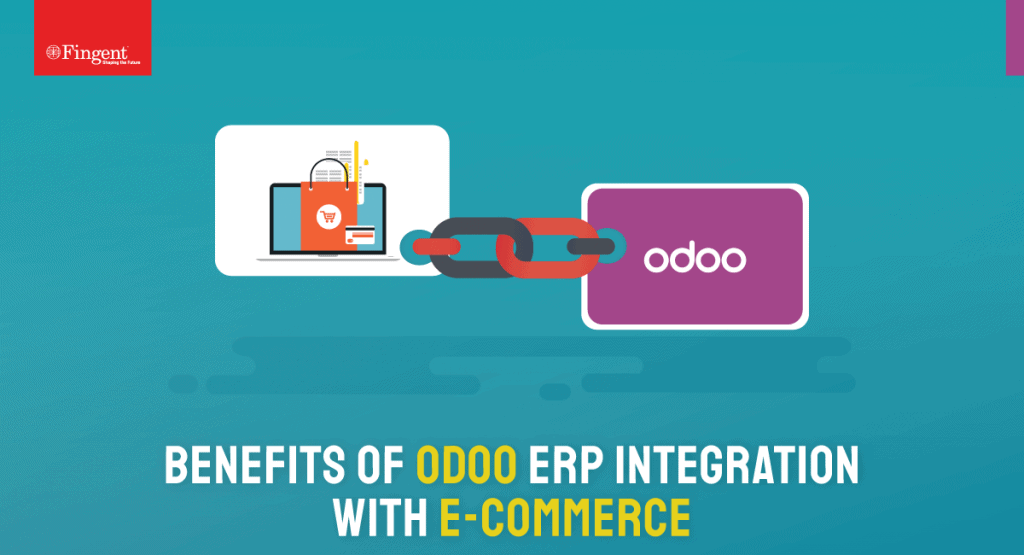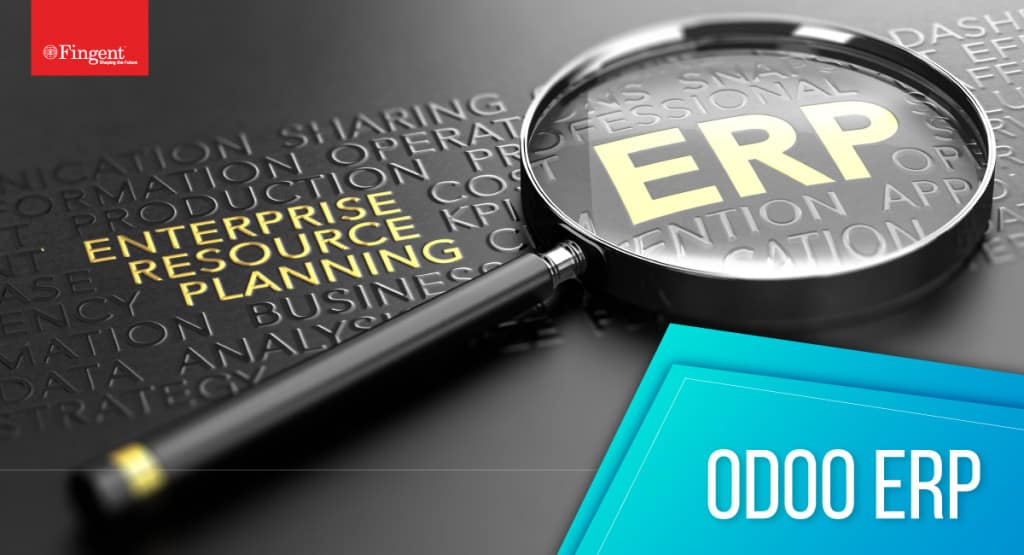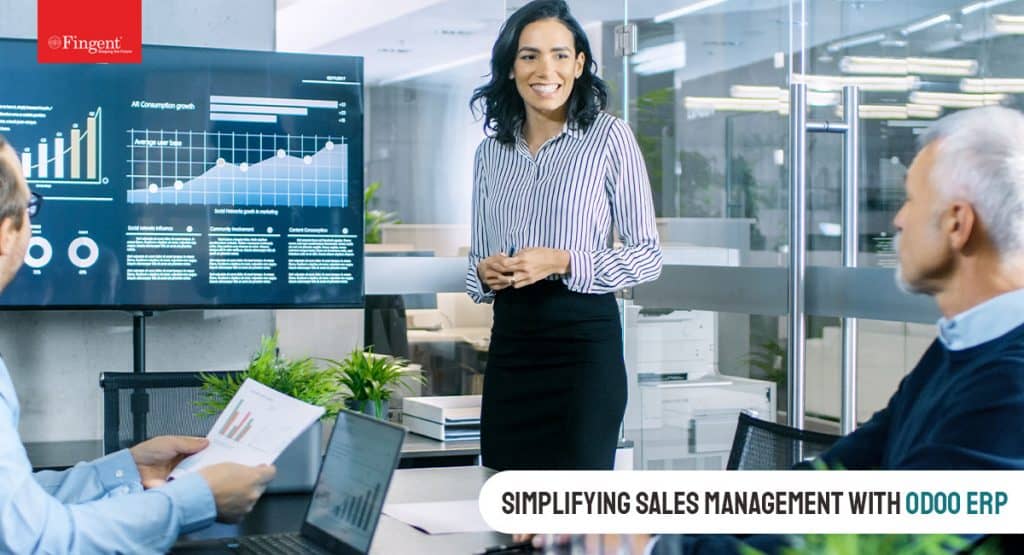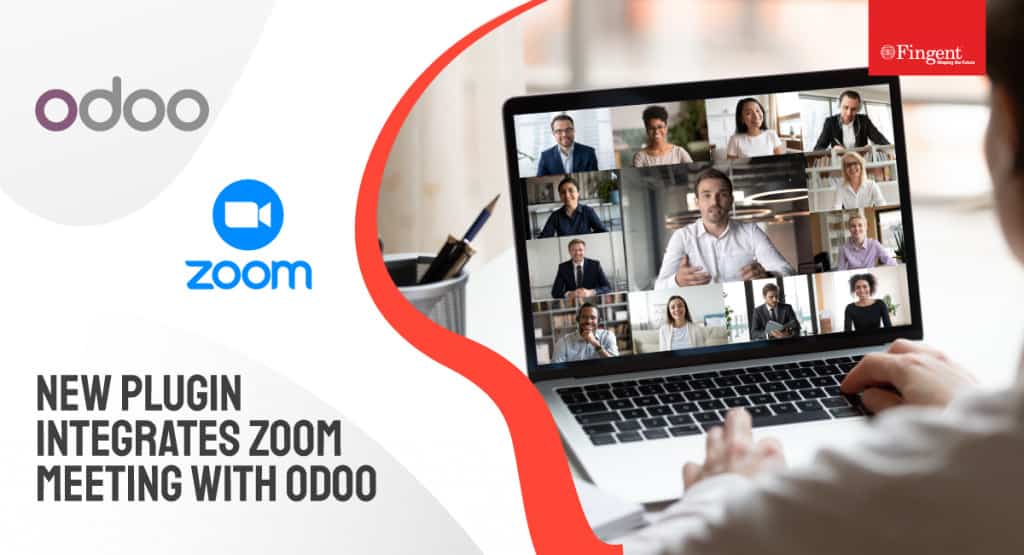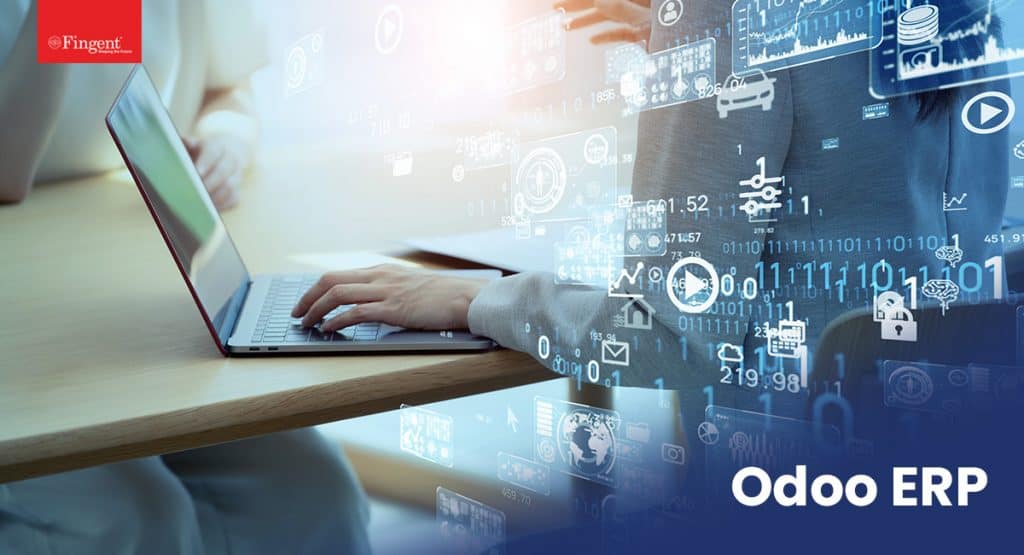How Odoo ERP Enhances Retail Operations Management
Being an Official Partner of Odoo, Fingent has always catered to the needs of various customers and streamlined their operations, thus saving their costs, time, and resources. In this post, you will see how Odoo ERP implementation helps retail management.
Odoo ERP: A Highly Customizable Cloud-based Platform for Retailers!
The retail industry is one of the primary beneficiaries of digital transformation. In 2010, eCommerce accounted for only 5-6% of the aggregate retail sales in the US. The industry has witnessed phenomenal growth over the past decade with the development and adoption of retail technology, ERPs, eCommerce applications, custom retail solutions, and stiff market competition. At present, online retail sales in the US account for 21% of the total retail purchases. Isn’t that mind-blowing?
The paradigm shift from the traditional operating landscape to a digital world presents both opportunities and challenges. Many people look for products online, make buying decisions based on social media reviews, and order products to be delivered home. They even use the internet to search local shops, order online and collect from nearby stores (click & collect) or find retailers that offer discounts in their area. The message is clear: physical/ in-store retailing also needs to pace up with the change.
To overcome the challenges in managing physical and digital selling, retailers need to adopt a modern enterprise resource planning (ERP) system.
Read more: 5 Reasons to Integrate Your E-commerce Application with Odoo ERP
Today, ERP is extensively used to simplify and automate customer relationship management, project management, accounting, compliance, inventory, and supply chain operations. ERP is a reliable investment for business owners as they can control and monitor their operations, get reports, and gain insights on consumer behavior and market situations.
Odoo ERP for Retail Management
ERP software allows integrating the core processes to run a company in one place, such as finance, manufacturing, HR, supply chain, inventory, procurement, tracking, transactions, etc. It also integrates all the data and related business processes of an organization.
Odoo ERP is a popular, open-source, cloud-based business management software that helps manage various business needs such as manufacturing, finance, inventory, point of sale (POS), eCommerce, purchase, logistics, etc. Odoo is an intelligent ERP system that allows retailers to integrate their whole data and all the processes associated with the retail industry. For retailers, Odoo is a perfect choice that increases profit and enhances productivity as it provides comprehensive solutions that can seamlessly integrate with eCommerce.
Read more: 5 signs which imply that your business needs Odoo ERP
How Odoo ERP Benefits Retail Management
Following are the significant benefits of using Odoo ERP in retail:
1. One-step checkout
In online shopping apps, the checkout stage tends to have several processes spread across different web pages. This can put off some customers who don’t want to spend their time navigating through each. Odoo eliminates these multiple processes by offering a one-step checkout that is fast, convenient, and intuitive. It has the potential to reduce checkout abandonment and thereby increase sales.
2. Craft stunning product pages
For eCommerce websites, high-quality product pages are crucial to gain maximum traction. Long descriptions with dull-looking pages are outdated. Odoo ERP lets you build beautiful and stunning product pages with a simple drag and drop feature. You can also customize your online store’s look, layout, color, and theme with Odoo and make last-minute changes to meet the demands and expectations of your clients. You can also make changes and enhancements at regular intervals to add more features to your store. Make sure that your digital store is mobile responsive to be compatible with the changes and new features.
3. Payment module integration
Having different payment options can enhance the customer experience. With Odoo’s plugins and extensions, retailers can integrate and customize various modules like wallets, cryptocurrencies, credit and debit cards, and UPI. It also supports PayPal, PayUMoney, Buckaroo, Sips, Stripe, Ingenico, Adyen, and Authorize.net.
4. Sales, purchase, and finance management
Odoo offers non-retail and retail companies different sales management processes. Odoo has a Point of Sale (POS) module, which is integrated with the sales and inventory module. This module helps retailers track stock and commodities in real-time. The module also allows for the use of biometric devices to log in and out. It’s compatible with any hardware and doesn’t require installation. What’s more, the POS remains operational even when offline.
Read more: How Odoo ERP Simplifies Sales Management in Your Organization
5. Inventory management
It’s a known fact that inventory management in a volatile and dynamic consumer goods market is an arduous task for many retailers. With several issues such as excess inventory or out-of-stock scenarios, inefficient inventory management processes result in financial loss and lead many retailers to bankruptcy.
Odoo ERP offers inventory management as its integral feature, where it stores details of an organization’s entire inventory, including the individual product details. Odoo enables retail managers to keep track of crucial information such as:
- The present status of the inventory
- Items that will run out of stock
- Shelf life details of each product
- Notifications related to product expiry
- Ability to make demand forecasts based on past trends and customers’ online behavior and buying habits
Odoo ERP enables retailers to gain a competitive edge by modifying inventory to meet the fluctuating customer demands.
Read more: Fingent’s new plugin facilitates the scheduling of Zoom meetings from Odoo!
6. Manufacturing and production
Retailers who are also engaged in manufacturing and production can use Odoo’s module to help run functions. The Manufacturing module can assist in creating bills of materials (BoMs), managing semi-finished products, subcontracting manufacturing, etc. It can also help in configuring work centers and managing and configuring kits.
7. The Cloud Advantage
- Odoo solutions are cloud-based, allowing retailers to access their e-commerce stores from anywhere in the world.
- Odoo is flexible, customizable, and scalable, making it especially ideal for small and medium-sized enterprises (SMEs).
- Odoo is an affordable ERP solution with the maintenance fees included in the license fee.
In a nutshell, Odoo ERP serves as a high-performance retail management system where retailers can manage everything on a single system. It can bring tremendous benefits to the retailing industry. They can integrate Odoo’s various business apps such as Sales, Accounting, Customer relationship management (CRM), Inventory, etc., with Odoo e-commerce.
The Odoo App Store features nearly 10,000 apps that connect to the same database on Odoo’s own servers. A testament to Odoo’s popularity is in the numbers: it has more than 5 million users worldwide, from start-ups to large enterprises.
With a simple checkout process, robust customer portal (order tracking, advanced shipping rules, and return management), order review, and wish lists, Odoo ERP provides real-time information to users.
Read more: Why Choose Fingent as Your Odoo ERP Partner
Fingent has an ace team of Odoo developers that offers consulting, development, and implementation services. Whether you want to integrate Odoo ERP with your existing e-commerce store or build an online store from scratch powered by Odoo integration, give us a call right away.
Stay up to date on what's new

Recommended Posts
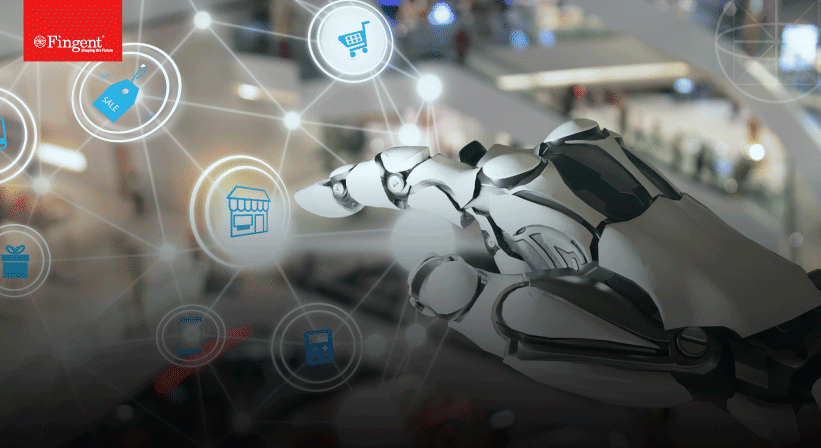
05 Jun 2024
AI in Retail: Benefits, Use Cases and More!
What can Artificial Intelligence do for your Retail Business? AI can boost your service and operational capabilities with intelligent data, effective processes, and smart analysis. Imagine having rich insights into……
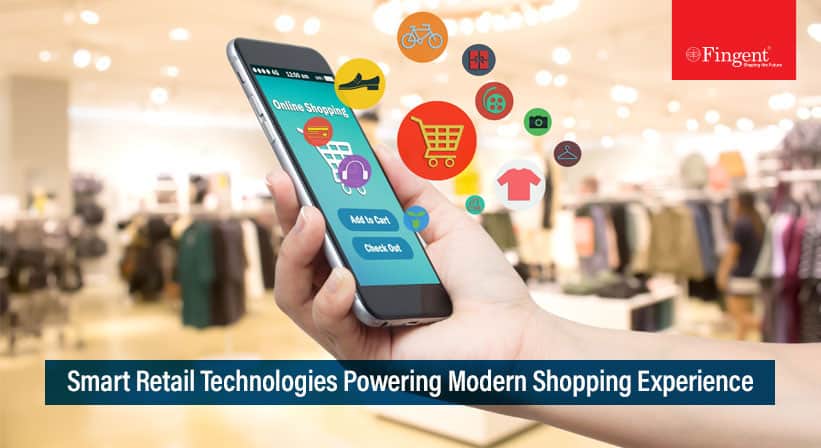
24 Oct 2023 Retail B2B
Explore Innovative Business Possibilities with Smart Retail Technologies
Our digital era is a whirlwind of change, with technology driving transformation at breakneck speed. It's not just about adopting new gadgets; it's about recognizing technology's influence on consumer interactions.……
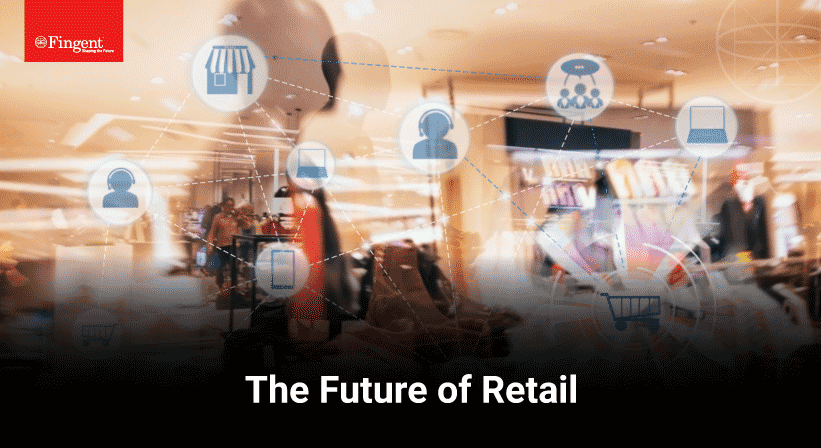
17 Mar 2023 Retail B2B
The Future of Retail: Key Technologies for Success
Over the years, digital evolution has transformed the way we shop! The lockdowns and store closures due to the unprecedented events of 2020 has moreover accelerated this evolution and mainstreamed……

14 Nov 2022 B2B
Is Open Source The Crucial Catalyst For Your Digital Transformation?
‘There is success through many advisers.’ This ancient proverb has proved not just true but very effective and powerful in this digital age. This is precisely what Open-Source Software (OSS)……
Featured Blogs
Stay up to date on
what's new



